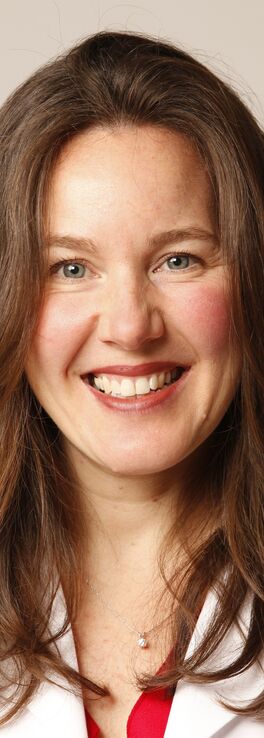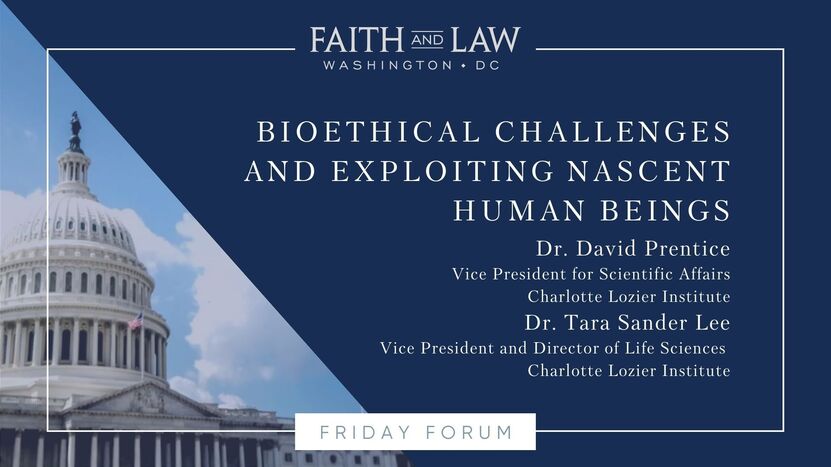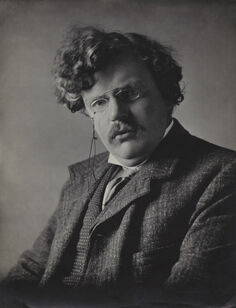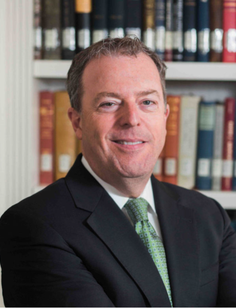Bioethical Challenges and Exploiting Nascent Human Beings
The development of medical treatments often requires use of human subjects, as well as human cells and body parts as models of human systems, to investigate mechanisms of action and to test therapeutics. Biotechnology has provided many successful therapies for previously intractable conditions, but also increasingly complex techniques that can alter what it means to be human and blur ethical lines. When we consider stem cells, cloning, gene editing, human-animal chimeras, organoids, embryoids and so-called synthetic embryos, what is ethical and what crosses the line of human dignity? Is any scientific endeavor justifiable because of a potential for cures, or are there ethical limits to efforts to heal or eliminate certain diseases all together? Do ethical alternatives exist that would benefit humanity without losing our ethical integrity?
The Charlotte Lozier Institute has developed the Handbook of Nascent Human Beings to explain the science and to stimulate discussion on the ethics and moral permissibility of modern medicine and biotechnology. The place of this research in policy will also be discussed.
David A. Prentice, Ph.D. is Vice President for Scientific Affairs at the Charlotte Lozier Institute. He is also Advisory Board Chair and a Founding Member for the Midwest Stem Cell Therapy Center, a unique comprehensive stem cell center in Kansas that he was instrumental in creating. In 2020, he was appointed by the Secretary of HHS to the federal Human Fetal Tissue Ethics Advisory Board. Dr. Prentice has almost 50 years’ experience as a scientific researcher and professor, including previous service as a staff member at Los Alamos National Laboratory, senior fellow at the Family Research Council, Professor of Life Sciences at Indiana State University, Adjunct Professor of Medical and Molecular Genetics, Indiana University School of Medicine, and Adjunct Professor of Molecular Genetics at the John Paul II Institute, The Catholic University of America. He has provided scientific lectures, policy briefings and testimonies in 40 states and 21 countries, including before the U.S. House and Senate and numerous state legislatures, the U.S. National Academy of Sciences, the President’s Council on Bioethics, European Parliament, British Parliament, Canadian Parliament, Australian Parliament, German Bundestag, French Senate, Swedish Parliament, the United Nations, and the Vatican.
Tara Sander Lee, Ph.D., is Vice President and Director of Life Sciences at the Charlotte Lozier Institute. A scientist with over 20 years’ experience in academic and clinical medicine with an emphasis on the cause of pediatric disease, Dr. Sander Lee earned a Ph.D. in Biochemistry from the Medical College of Wisconsin followed by postdoctoral training at Harvard Medical School and Boston Children’s Hospital in molecular and cell biology. Dr. Sander Lee was an appointed faculty member at the Medical College of Wisconsin, where she directed a research laboratory investigating congenital heart disease in children and served as Scientific Director of Molecular Diagnostics at Children’s Hospital of Wisconsin. She has also served as a scientific consultant and is currently a member of the U.S. Secretary of Health and Human Services Advisory Committee on Infant and Maternal Mortality.
Dr. Sander Lee is dedicated to promoting ethical advancements in healthcare that protect the sanctity of every human life. She has given expert legislative testimony, numerous national media interviews, and provided scientific advice for legislators, policymakers, and organizations. Dr. Sander Lee is published in various medical journals and textbooks, including her most recent contribution to the book, Choose Life: Answering Key Claims of Abortion Defenders with Compassion. She is also lead editor of VoyageOfLife.com, a website that reveals the remarkable journey of every human being in the womb from conception to birth, and how we are each “fearfully and wonderfully” made.





